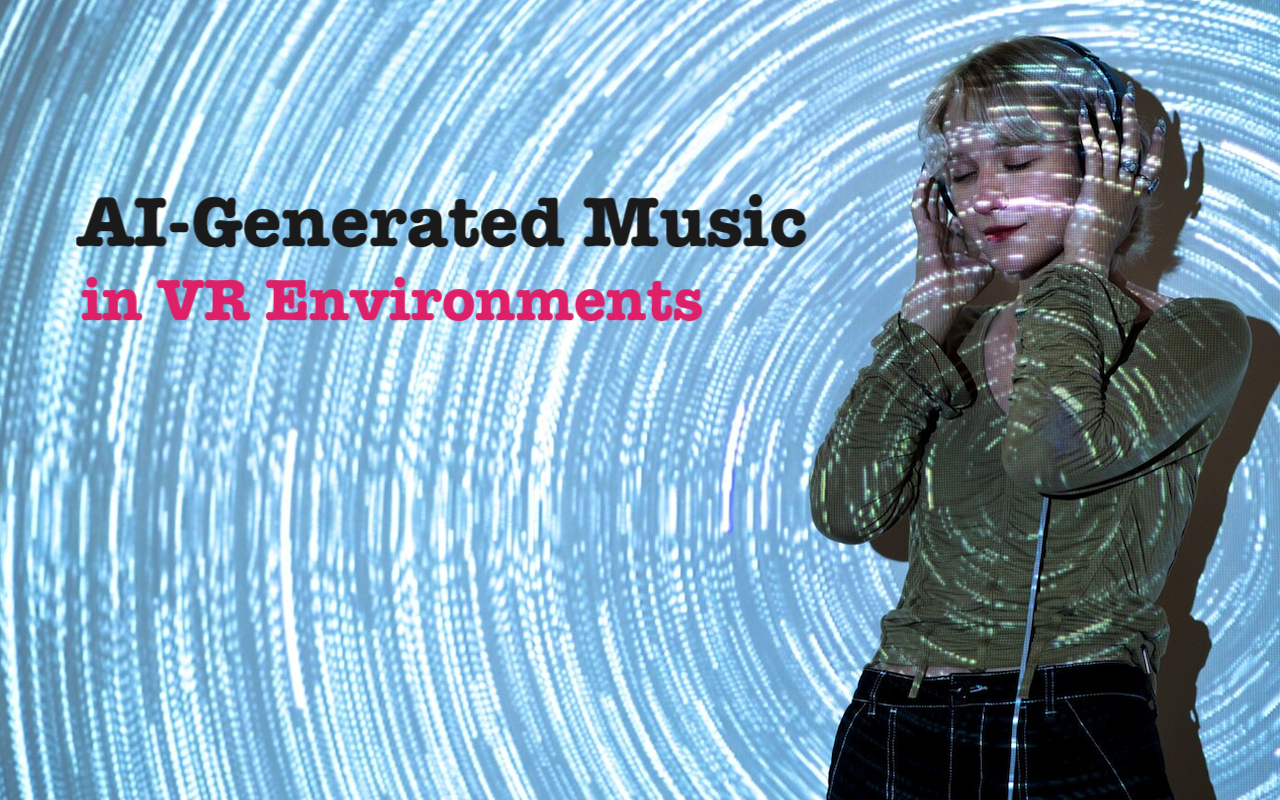
As virtual reality (VR) technology continues to evolve, the integration of immersive audio experiences becomes increasingly vital for enhancing user engagement. One of the most exciting developments in this realm is the use of AI-generated music. With tools like the Mubert, creators can craft dynamic soundscapes tailored specifically for virtual environments, elevating the overall user experience.
The Importance of Sound in Virtual Reality
In VR, sound plays a crucial role in creating an immersive experience. Unlike traditional media, where visuals dominate, VR requires a harmonious blend of sound and sight to transport users into alternate realities. Music and sound effects can influence emotions, guide user actions, and provide context within a virtual space. This makes the need for high-quality, adaptive soundtracks essential.
AI-generated music offers a unique solution to the challenges of crafting custom soundscapes for VR environments. By utilizing algorithms and machine learning, creators can produce music that responds to user interactions, environmental changes, and the overall atmosphere of the virtual world.
Benefits of AI-Generated Music for VR Experiences
- Dynamic Adaptability. One of the primary advantages of AI-generated music is its ability to adapt in real time. As users navigate through a virtual environment, the music can shift in tempo, mood, and intensity based on their actions or the surrounding environment. This creates a more engaging and interactive experience.
- Tailored Soundscapes. With AI, creators can design specific soundtracks that match the themes and emotions of their virtual worlds. For instance, a serene nature environment might feature calming, melodic tunes, while an action-packed gaming scene could benefit from high-energy, adrenaline-pumping music. The music genre generator allows developers to select genres that align with their creative vision, ensuring that every sound complements the visual narrative.
- Cost Efficiency. Producing high-quality music for VR projects can be expensive and time-consuming, especially when hiring composers or purchasing licenses. AI-generated music offers a more cost-effective solution, allowing creators to access a vast library of customizable tracks without the financial burden.
- Diverse Musical Styles. The use of AI enables the creation of music across various genres and styles. Whether you're developing a fantasy adventure, a horror experience, or an educational simulation, AI can generate soundscapes that enhance the theme and tone, making the virtual environment more engaging and believable.
Enhancing User Interaction with AI Music
User interaction is a cornerstone of successful VR experiences. AI-generated music can be programmed to respond to user input, adding an extra layer of engagement. For example, as users explore, the music might evolve based on their movements or decisions, creating a sense of agency and involvement.
Moreover, incorporating sound cues that correspond to specific actions can improve usability. For instance, background music could swell in intensity when a user encounters a significant event or challenge, signaling the importance of the moment. This not only enhances immersion but also aids in storytelling within the virtual realm.
Case Studies: AI-Generated Music in VR
Several industries are beginning to harness the potential of AI-generated music in VR. For example, in the gaming sector, developers are using AI to create adaptive soundtracks that change based on player behavior, significantly enhancing the gaming experience. Similarly, educational VR applications leverage music to create immersive learning environments where soundscapes reflect the subject matter and engage learners more effectively.
In the realm of art and virtual exhibitions, AI-generated music is being used to enhance the ambiance of galleries and installations. Artists can curate experiences that combine visual art with sound, creating multisensory environments that captivate and inspire visitors.
The Future of AI-Generated Music in Virtual Reality
As technology advances, the potential for AI-generated music in virtual reality environments is limitless. Future developments may include even more sophisticated algorithms that allow for deeper emotional connections through sound. Additionally, as VR technology becomes more mainstream, the demand for personalized audio experiences will likely grow, driving further innovation in this space.
Share this post
Leave a comment
All comments are moderated. Spammy and bot submitted comments are deleted. Please submit the comments that are helpful to others, and we'll approve your comments. A comment that includes outbound link will only be approved if the content is relevant to the topic, and has some value to our readers.

Comments (0)
No comment